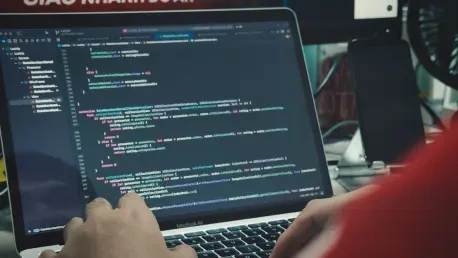The emergence of artificial intelligence technologies has set the stage for a transformative shift in the realm of software engineering, sparking curiosity among industry experts and professionals alike. With AI capabilities advancing rapidly, influential figures such as Tom Blomfield and David Lieb from Y Combinator foresee the evolution of traditional software engineering roles over the next few years. These changes will prompt engineers to embrace new responsibilities rather than fear obsolescence. The focus will shift from routine coding tasks to strategic leadership roles within technological innovation. Companies like Google, Microsoft, and Meta are already pioneering AI-driven methods in coding, signaling an industry-wide shift towards automation and abstraction. This transition will redefine the landscape, urging software engineers to adapt and become adept at managing sophisticated AI systems and integrated technologies.
Historical Steps Toward Enhanced Human Roles
From Machine Code to Modern Programming
Historically, software engineering has undergone notable transformations, evolving from the foundational days of machine code to the more sophisticated intellectual challenges of modern programming. This iterative progress highlights the constant drive toward efficiency and abstraction. As programming languages progressed through various stages—from assembly to high-level languages—the focus remained steadfast on enhancing human roles within the technological domain rather than rendering them obsolete. David Lieb refers to these transitions as a natural progression, emphasizing that each leap in technology leads to higher standards in skill sets and a broader scope for human involvement. Critical thinking, problem-solving, and oversight of complex systems are increasingly crucial. These skills allow engineers to navigate the intricate frameworks that AI technologies necessitate.
Increasing Importance of Strategic Involvement
The narrative of AI advancement parallels past technological shifts where human roles transitioned from routine, repetitive tasks to complex, strategic challenges. Tom Blomfield outlines a roster of future tasks awaiting the modern software engineer, highlighting roles such as “AI wrangler,” who shapes the architectural structure of future technological landscapes. Emphasis on integrating AI-generated code with conventional software marks a crucial turning point in technology, whereby engineers will play instrumental roles in prompting AI systems efficiently and strategically. This requires engineers to situate themselves within new contexts, directing AI capabilities to align with broader organizational goals. As human engagement shifts toward strategic oversight, the industry will see increased expectations of engineers to manage sophisticated integration tasks and system architectures.
AI’s Influence on Engineering Practices
Automation and the Art of Code Writing
AI’s growing influence on software engineering practices is undeniable, with coding automation methods emerging as substantial players in the industry. Automation alleviates mundane coding duties, allowing human thought and strategy to flourish in environments nurturing innovative solutions. As companies like Google and Microsoft integrate AI technologies into their frameworks, routine coding tasks become streamlined processes managed by intelligent systems. While AI holds the potential to handle substantial coding workloads, the need for human intervention persists in higher-level managerial roles, ensuring alignment with business objectives, project guidelines, and ethical standards. Engineers must now focus their energies on understanding and deploying AI functionalities, providing strategic oversight to guide and refine automated processes.
Preparing for a Strategic Leadership Role
Software engineers are being prompted to redefine their career paths, gearing up for a transition to strategic leadership roles facilitated by AI-enhanced environments. The complexity and depth of strategic decisions within tech-oriented companies require an amalgamation of classic engineering expertise and contemporary AI management skills. Keen observations by industry specialists emphasize that engineers must cultivate an understanding of AI prompt engineering, integrate AI-driven modules, and oversee intricate systems to remain competitive in these evolving landscapes. Future commitments call for balancing technological acumen with a strategic mindset, advancing human roles to orchestral positions that dictate the progression of software innovation.
Looking Toward a Tech-Driven Tomorrow
Software engineers are being urged to reshape their career trajectories, preparing to step into strategic leadership roles within AI-enhanced workplaces. As tech companies face increasingly complex strategic decisions, there’s a need for a fusion of traditional engineering prowess with modern AI management skills. Experts in the industry underscore the necessity for engineers to develop expertise in AI prompt engineering, incorporate AI-driven components, and manage sophisticated systems to stay competitive in these dynamic environments. The future beckons them to not only master technological aptitude but also adopt a strategic focus, pushing human roles to become directors that guide the evolution of software innovation. Engineers must now prioritize harmonizing technical knowledge with strategic thinking, positioning themselves to lead, orchestrate, and influence the direction of technological advancements. This evolution ensures their relevance and leadership in shaping the future of tech-driven innovation.









